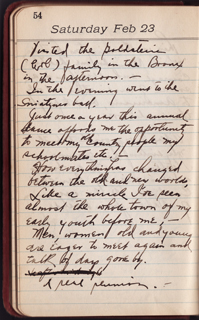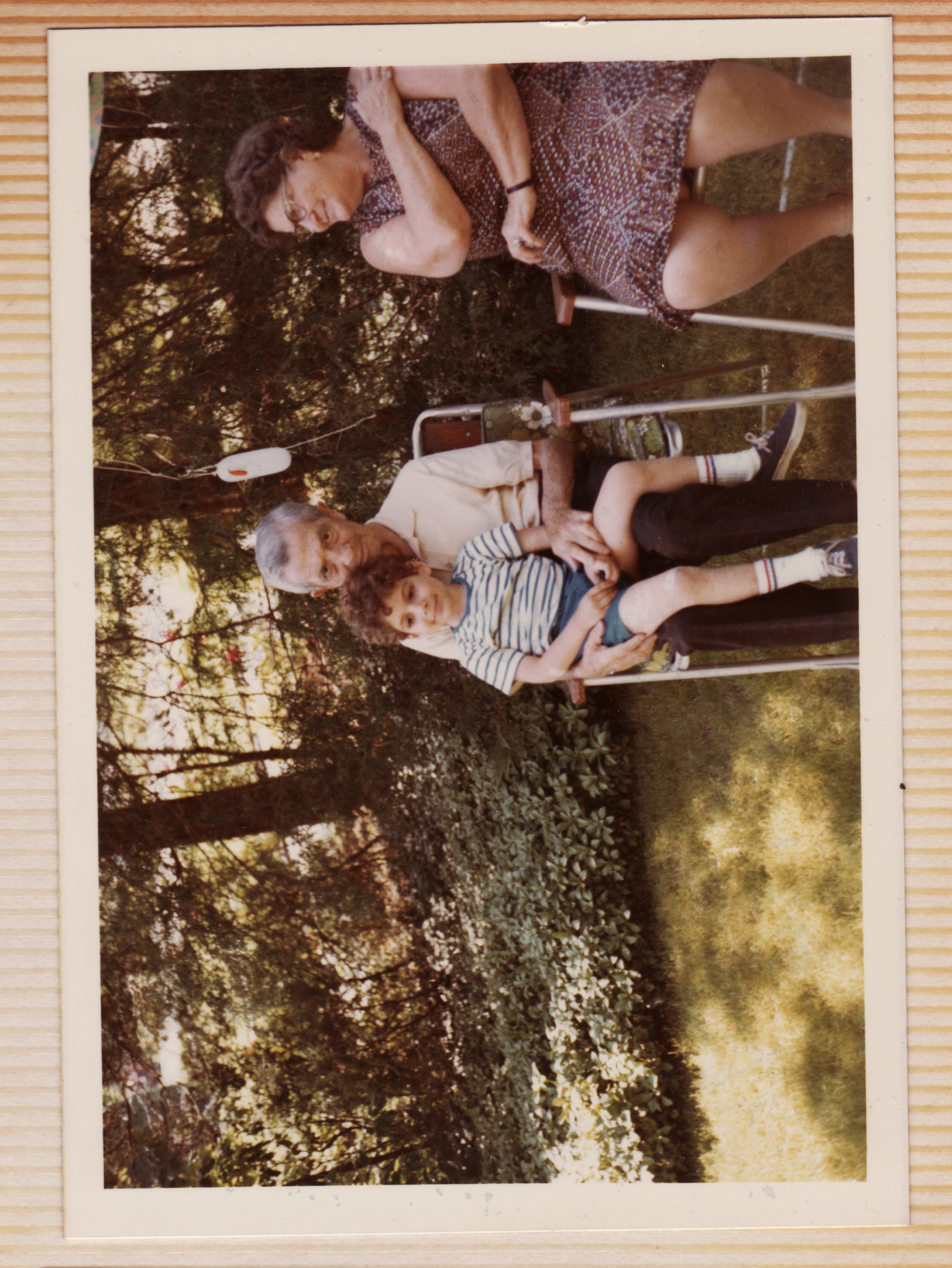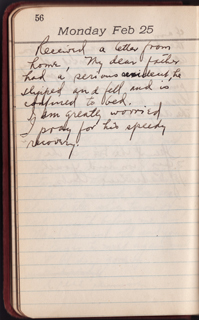
I saw H.S. after midnight in the
subway selling papers, hardly to be
recognized. —
When single he was sporty well
dressed had a little business of his own
was good, fine, a wonderful chap.
Well he married some time ago
a fine little girl.
He failed in business and to support
his little family he became a newsboy
How cruel fate is to some people.
Very hard is he struggling now
his little wife faithful at his side
encouraging him to carry on hoping
for better times.
A newsboy dressed in the humblest clothes
runs through the subway cars seeking
customers for his morning papers,
I hid myself on the platform that he
may not see me to spare him the possible
shame of his pride
————
Matt’s Notes
My mother writes:
“I wonder who the unlucky H.S. is. So typical and kind of Papa to hide so the man won’t be embarrassed. Look how he romanticizes his little wife by his side. She may have thrown him out on his sad backside…”
This portrait of H.S. is one of Papa’s more literary entries in a while; notice how it takes on an almost fictional narrative style when he says “a newsboy dressed in the humblest clothes runs through the subway cars…” And, as in all literature, the author’s own proclivities register between the lines: Papa’s own giving, generous nature, coupled with his own longing for a wife and family, guides his imagination toward idealized images of supportive spouses and cruel fates; as my mother observes, he never entertains thoughts of domestic trouble or H.S.’s culpability.
So he hides from H.S., and I truly believe he did it to spare the man’s feelings (and to spare his reputation for posterity, he hid his full name as well). But if I were directing this scene for a movie and the actor playing my grandfather asked why he was motivated to hide, I might suggest “because you’re similar people from similar backgrounds, and you’re hiding from the thought that you might wind up like him.” H.S. even has the same initials as Papa, almost like a symbolic figure in a Gothic novel, an unwelcome doppelgänger who challenges Papa’s illusions.











